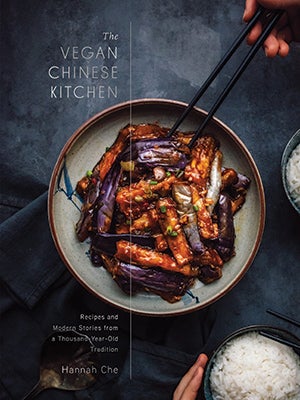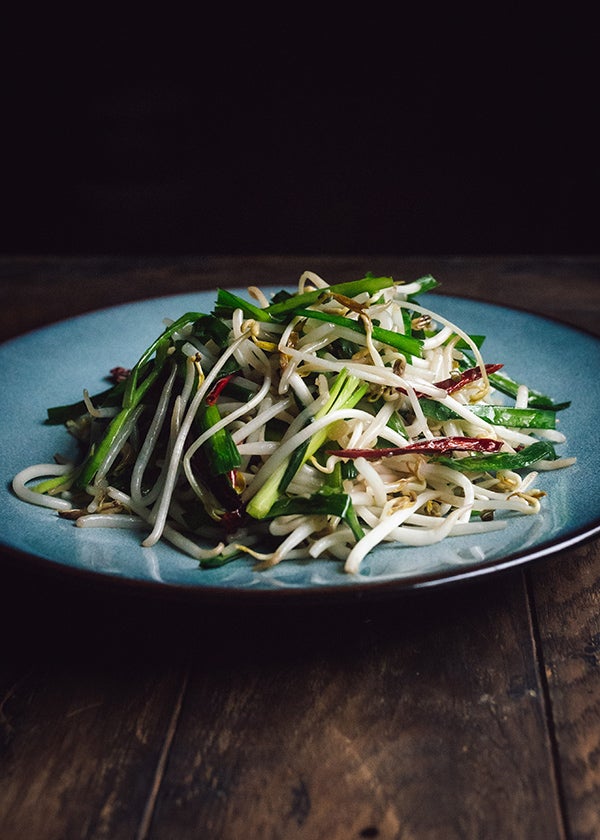The Vegan Chinese Kitchen
A debut cookbook took home a James Beard Award for alumna Hannah Che.
Fall 2023

The Vegan Chinese Kitchen
Recipes and Modern Stories from a Thousand-Year-Old Tradition
Hannah Che ’17, ’19
Clarkson Potter, 2022
Winning the James Beard vegetarian cookbook award for 2023 and appearing on the “best cookbooks of the year” lists for The Washington Post, The New York Times, Saveur, Vice, Epicurious, and Library Journal is surely too much hype, isn’t it? But “The Vegan Chinese Kitchen” by Hannah Che wows. With heavyweight paper, a beautiful visual design and gorgeous photos — which Che herself took — it’s no surprise that all our magazine staff hungrily eyed our one review copy.
When Che decided to adopt veganism in college, she feared she would lose touch with her family’s heritage, but then she learned that plant-based cooking goes back centuries in China’s Buddhist temples. As Che explains in the book, there’s symbolic and traditional value in making faux versions of meat, poultry and fish dishes, and with two thousand years to refine techniques, there are ways of replicating nearly any traditional Chinese dish with tofu, seitan, mushrooms and other stand-ins.
Che gained all this knowledge in the best way possible: She moved to China to attend culinary school, trained as a chef in China’s only professional vegetarian cooking program, and studied with Buddhist temple cooks in Taiwan and traditional artisans in Shanghai, Chengdu, Suzhou and Guangzhou. The book includes beautifully written stories of these experiences and other parts of Che’s life, as well as plenty of tips and explainers.
Even with all the help, some of the techniques will be daunting for amateur cooks, and some recipes call for ingredients you won’t find without a local Asian supermarket. But for those who are up for the challenge, this book is a beautiful guide. Here's a simple recipe to try, below.
— Hilary C. Ritz

Stir-Fried Bean Sprouts with Chinese Chives
Qingchâo dòuyá
Serves 4
4 heaping cups (8 ounces / 220 grams) mung bean sprouts
2 tablespoons vegetable oil
1 tablespoon minced ginger
5 dried red chiles, snipped into 1/2-inch segments and seeds shaken out
4 ounces (110 grams) Chinese garlic chives or scallions, cut into 2-inch segments
1/2 teaspoon kosher salt, plus more to taste
1/4 teaspoon MSG, or to taste
Directions:
Rinse the sprouts under water, then drain them in a colander and shake as dry as possible. If using home-grown sprouts, you don’t have to rinse them.
Heat a wok or skillet over medium-high heat until a bead of water evaporates within 1 to 2 seconds on contact. Add the oil and swirl to coat the sides. Add the ginger and stir-fry until fragrant, about 30 seconds. Add the dried chiles and stir-fry until they begin to darken, about 30 seconds. Add the chives and stir-fry for 10 seconds, until wilted. Turn the heat to high, add the bean sprouts, and stir-fry for about 1 minute, until piping hot and reduced in volume but not yet releasing liquid. Season with salt and MSG to taste. Transfer to a dish and serve.
